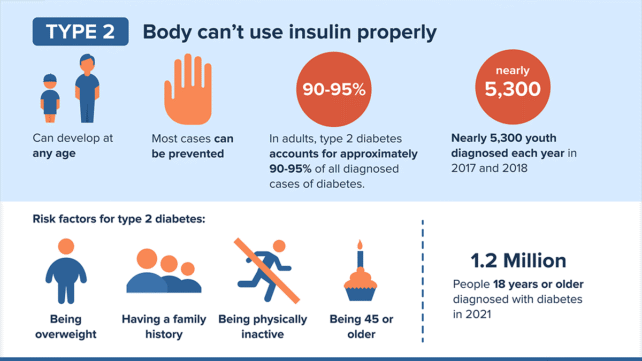Not all sugary treats hit the same. According to new research, gulping down a sweet beverage may be worse for your metabolic health than munching on a sweet snack.
The systematic review brings together health data from over half a million adults around the world, and it finds that each additional serving of a sugar-sweetened beverage or fruit juice per day is associated with a higher risk of developing type 2 diabetes.
Dietary sugar, on the other hand, was linked to a lower risk of type 2 diabetes.
The findings suggest that not all sugar is equally bad for you. Some types and amounts may be more associated with insulin issues than others.
"This is the first study to draw clear dose-response relationships between different sugar sources and type 2 diabetes risk," says nutritional scientist Karen Della Corte from Brigham Young University.
"It highlights why drinking your sugar – whether from soda or juice – is more problematic for health than eating it."

Today, it is a popular belief that dietary sugars are linked to diabetes. But some researchers argue that assumption lacks persuasive data. They say type 2 diabetes is more clearly tied to excess energy intake or excess body fat gain, rather than sugar alone.
In 2023, for instance, researchers found a significant association between total sugar intake and an increased risk of diabetes, and yet that relationship was closely tied to a person's body mass index. The findings suggest that sugar facilitates weight gain, indirectly impacting the body's metabolism. But could it have other health impacts, too?
To find out more, Della Corte and her colleagues compared the risk of diabetes from daily doses of fructose, sucrose, free sugars (which are naturally occurring, like in honey), added sugars, and total sugars. They also zeroed in on sugar-sweetened beverages, like soft drinks or sports drinks, and fruit juice.
The risk of developing type 2 diabetes differed depending on which sugar was consumed. Intakes of sucrose and total sugar were associated with a lower risk of type 2 diabetes, while no associations were found for added sugar and fructose.
Other sugars, however, were tied to the opposite outcome. Each additional daily serving of a soft drink increased the risk of type 2 diabetes by 25 percent in the current study. Plus, each extra serving of fruit juice increased the risk by 5 percent.
That was true even after researchers adjusted for a person's body mass and energy intake.
This does not mean that each time you drink a can of soda, your risk of developing type 2 diabetes goes up by 25 percent. These are relative, not absolute risks.
Based on these numbers, if you had a baseline risk of developing diabetes that was 10 percent, for instance, then having four sodas a day would raise that risk to 20 percent.
The study highlights a concerning correlation, but further research is needed to understand why fruit juice may be more damaging to the body's metabolism than, say, an actual piece of fruit.
"The high sugar content and lack of fiber in fruit juice are similar to sugar-sweetened beverages, making it a poor substitute for whole fruits, which provide higher fiber content to support better blood glucose regulation," explain the authors.
"Sugar-sweetened beverages supply isolated sugars leading to a greater glycemic impact, whereas other sources of dietary sugars, particularly when consumed in nutrient-dense foods such as whole fruits, dairy products, or whole grains, may elicit slower blood glucose responses due to accompanying fiber, fats, or proteins."
Rather than "condemning all added sugars", the team argues that future nutrition guidelines should consider the context in which sugars are eaten.
Without a solid foundation of nutrient-dense foods, some types of sweet treats may be more dangerous than others.
The study was published in Advances in Nutrition.
